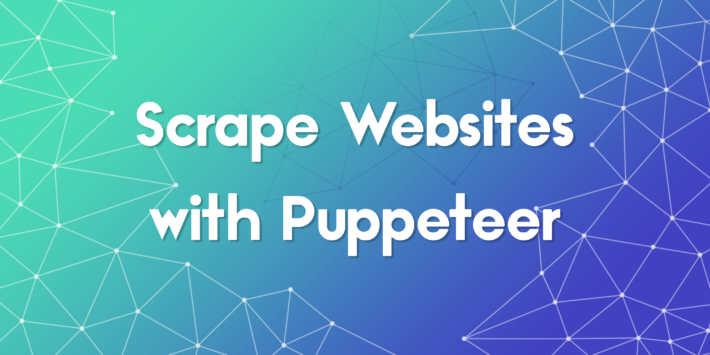JavaScript vs. Rust for Web Scraping: Which is Better in 2025?

In the ever-evolving world of web scraping, choosing the right programming language is crucial for performance, security, and efficiency. In this article, we compare JavaScript and Rust, two popular languages with unique advantages. Which one is better suited for web scraping in 2025? Let’s explore their capabilities and determine the best fit for your scraping needs.
Why Compare JavaScript and Rust?
While JavaScript dominates web development, Rust is gaining popularity in systems programming due to its speed and safety features. Both languages can be used for web scraping, but their differences make them suitable for different scenarios. Understanding these distinctions will help you make an informed decision.
For effective web scraping, using ProxyTee’s residential proxies can enhance both JavaScript and Rust scraping projects, ensuring better anonymity, higher success rates, and geo-targeting flexibility.
Overview of JavaScript
JavaScript (JS) is an interpreted language crucial for web technologies, known for its flexibility and compatibility with browsers. Its capabilities extend from frontend to backend with Node.js, offering developers a unique advantage in full-stack web projects.
Key Features of JavaScript:
- Cross-platform compatibility: works on any browser.
- Adaptability: used for frontend, backend, and scripting.
- Numerous frameworks: based on JavaScript like React, Angular, Node.js, etc.
- Dynamic Typing: Offers high flexibility with variables during runtime.
- Comprehensive web API: features like DOM manipulation and AJAX support.
- Asynchronous Programming: Effective management of asynchronous tasks, making for engaging web applications.
- Vibrant Community: large community of active contributors.
These features, paired with ProxyTee’s powerful infrastructure, empower users to execute their web scraping tasks seamlessly, with high reliability and scalability. This allows users to focus on data processing, while ProxyTee takes care of connection management, anti-bot bypass and geographical flexibility.
Advantages of JavaScript for Web Scraping:
- Easy to learn: Especially for those familiar with web development.
- Headless browser automation: Puppeteer and Playwright provide robust tools for interacting with websites.
- High flexibility: Supports both frontend and backend scraping.
- Great community support: Large pool of solutions, tutorials, and documentation.
Disadvantages of JavaScript for Web Scraping:
- High memory usage: Can slow down performance for large-scale scraping.
- Security vulnerabilities: Prone to attacks like XSS and injection.
- Inconsistent behavior: Different browser environments may cause unexpected results.
Overview of Rust
Rust is a type-safe language that focuses on performance, safety, and concurrency. Known for its memory safety without garbage collection, Rust ensures high performance in software development, with a growing number of crates (packages) available.
Key Features of Rust:
- System-level Programming: Ideal for low-level control over hardware resources.
- Memory Safety: Manages memory without the need for garbage collection.
- Concurrency: Guarantees concurrent code without data races.
- Pattern Matching: Has powerful pattern matching and algebraic types.
- Zero-Cost Abstractions: Write code that is expressive and efficient, without allocating extra memory.
- Cargo Manager: Its own package manager, ProxyTee has made its own library easily integrable using the official manager.
- Strong Community and Ecosystem: has a rich and active community.
Advantages of Rust for Web Scraping:
- High speed: Faster execution and lower resource consumption.
- Thread safety: Enables efficient concurrent scraping.
- Reliable memory management: No garbage collection overhead.
- Lower risk of bans: Efficient request handling reduces detection.
Disadvantages of Rust for Web Scraping:
- Steep learning curve: More complex syntax compared to JavaScript.
- Smaller ecosystem: Fewer libraries and frameworks for scraping.
- Verbose code: Requires more boilerplate compared to JavaScript.
Side-by-Side Comparison: JavaScript vs. Rust for Web Scraping
| Feature | JavaScript | Rust |
|---|---|---|
| Ease of Learning | Easy | Difficult |
| Performance | Moderate | High |
| Memory Usage | High | Low |
| Concurrency | Good (async/await) | Excellent (thread safety) |
| Ecosystem | Large (Node.js, Puppeteer, Playwright) | Growing (reqwest, scraper) |
| Security | Moderate | High |
| Flexibility | High | Moderate |
| Scalability | Good | Excellent |
In-Depth Analysis
Let’s explore how these two languages stack up across critical aspects:
- Learning Curve: JavaScript offers a gentler learning curve, while Rust demands more initial investment with a high learning curve focused on safety and performance. However ProxyTee’s flexible integrations means you can work with the language you prefer without issues.
- Performance and Memory Usage: Rust shows better performance and memory efficiency because of the low-level management. JavaScript performance, while good, comes at higher memory usage.
- Scalability: Node.js scales very well but may require optimizations. Rust is naturally suitable for scalable systems due to its approach to concurrency. However, ProxyTee’s unlimited bandwidth and its architecture will scale along with your scraping requirements in either case.
- Flexibility: JavaScript offers more flexibility with its dynamic typing, Rust offers stricter rules leading to reliability but being less flexible. This will impact your choice based on what is prioritized for your scraping project.
- Security: JavaScript has potential security vulnerabilities that need attention when developing, Rust has strong compile-time checks against security risks making it more secure.
Which One Should You Choose?
Choose JavaScript if:
✅ You need quick development with ready-to-use scraping tools.
✅ You work with dynamic web pages and JavaScript-heavy websites.
✅ You prefer a wide range of libraries for web scraping.
✅ You want simpler debugging and community support.
Choose Rust if:
✅ You need high-speed, concurrent scraping at scale.
✅ You require low-level control over network requests.
✅ You prioritize security and memory efficiency.
✅ You are comfortable with complex syntax and verbose code.
Web Scraping: JavaScript vs Rust
Rust for Web Scraping:
- Ideal for concurrent web scraping.
- Some available crates such as
scraperfor HTML parsing andreqwestfor making HTTP requests. thirtyfouras Rust bindings for Selenium.rust-headless-chromefor headless browser automation.
Choose JavaScript if:
- Offers powerful libraries like
Cheerio,Puppeteer,Playwright,Axios, andnode-fetch. - Supported by documentation, and more robust tools for a better experience.
Despite Rust’s strengths in performance and concurrency, the richness of JavaScript’s libraries and support makes it generally a better choice for web scraping in most situations. When performance is critical, Rust may be a better alternative, especially paired with ProxyTee high speed proxies, but JavaScript, along with its ecosystem, usually is the preferred route.
You should use a tool like ProxyTee, that provides you unlimited residential proxies that fit your needs regardless of the development language or use case. With our multiple tools like auto rotation of the IPs, or targeting in over 100 countries, you will obtain the perfect environment for web scraping. Our competitive pricing is hard to beat too.
Choosing between JavaScript and Rust depends on the use case and what one values as priorities. For common web scraping projects, JavaScript and the ecosystem of packages may be a better choice, for projects focused on memory management and resource allocation, Rust could provide you with better results.
Regardless of your language, ProxyTee supports you with our high-quality residential proxies, global coverage and many features, such as a user friendly GUI and a simple API for seamless integrations. Ensure your scrapers remain undetected and efficient!


